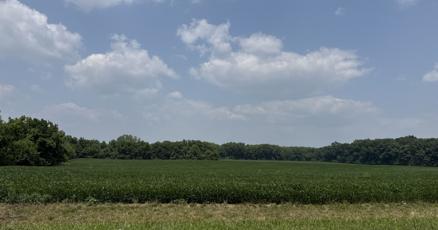Local Opposition Halts Danville Solar Farm Project Amid Environmental Concerns
A proposed 2.25-megawatt solar farm project in Danville has been withdrawn following strong community opposition and environmental concerns, highlighting the challenges of renewable energy development.

Proposed site of the withdrawn Danville solar farm project at Markley and Perrysville roads
A proposed 2.25-megawatt solar energy project in Danville, Illinois, has been withdrawn from the city council's agenda following significant community pushback and environmental planning concerns. The project, proposed by Summit Ridge Energy subsidiary Danville IL 1, LLC, faced strong opposition during recent public hearings, highlighting the growing tension between renewable energy development and local community accountability.
Community Opposition and Environmental Concerns
The project, which would have covered 28.3 acres of agricultural land with approximately 4,900 solar modules, drew criticism from about 20 local residents during zoning commission hearings. Their concerns encompassed various environmental and quality-of-life issues, demonstrating the importance of robust government oversight and public engagement in renewable energy projects.
Key Community Concerns:
- Proximity to residential areas
- Noise pollution and construction traffic
- Rainwater runoff management
- Vegetation and weed control
- Fire safety protocols
- Light reflection issues
- Agricultural land preservation
- Site cleanup after decommissioning
Regulatory Challenges and Zoning Requirements
Danville Community Development Administrator Logan Cronk emphasized that local governance processes exist to protect community interests and ensure proper development oversight. The project's compliance with the 100-foot minimum distance requirement from residential properties was among the contested issues.
"Zoning exists to protect the community, landowners and neighborhoods," stated Cronk, highlighting the critical role of public hearings in assessing community impact.
Project Details and Future Implications
The proposed installation would have operated under a 25-year lease agreement with Martin Farms Inc., with potential extensions totaling up to 40 years. Summit Ridge Energy had planned to implement visual screening through tree plantings along Perrysville Road, though these mitigation efforts ultimately proved insufficient to address community concerns.
Rachel Whitman
Rachel L. Whitman is a political columnist and investigative journalist based in Washington, D.C. Her writing focuses on democratic resilience, civil rights, and the intersection of technology and public policy. With a background in law and public affairs, she brings sharp analysis and a deep commitment to progressive values.
